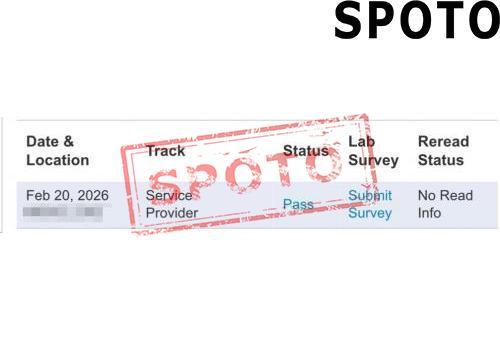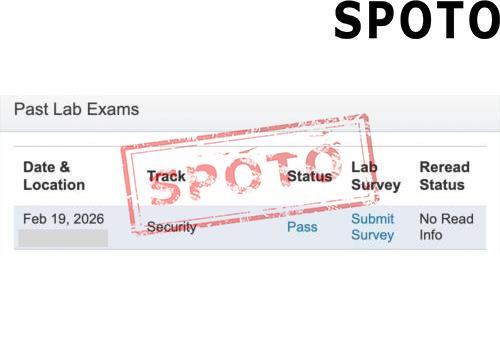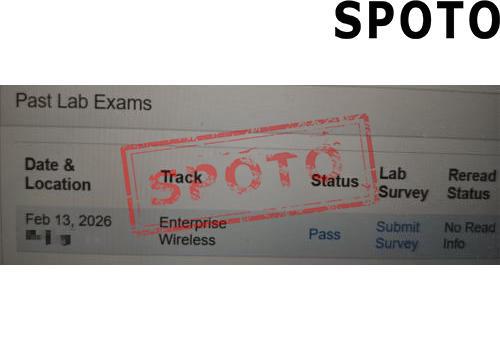
The Cisco Certified Internetwork Expert (CCIE) certification has long been regarded as one of the most prestigious and challenging networking certifications in the IT industry. For decades, it has been a symbol of expertise and technical prowess in the world of networking. But as the landscape of networking continues to evolve with trends like cloud computing, SDN (Software-Defined Networking), network automation, and the increasing importance of security, many are asking: Is CCIE still in demand?
In this article, we'll explore the current relevance of the CCIE certification, its place in today's networking job market, and whether it continues to be a valuable credential for aspiring IT professionals.
1. The Enduring Reputation of CCIE
The CCIE certification was first introduced by Cisco in 1993 and has since become synonymous with the highest level of networking expertise. It is awarded to professionals who pass rigorous exams that test their knowledge in areas such as routing and switching, security, wireless networking, and service provider technologies.
Despite the rapid advancements in technology and the emergence of new certifications, the CCIE remains a gold standard in networking. Here are some reasons why:
- Comprehensive Skillset: A CCIE-certified professional is proficient in designing, implementing, and troubleshooting complex networks. The hands-on nature of the certification ensures that candidates have practical, real-world skills.
- Prestige: Being a CCIE is still one of the most respected achievements in the tech industry. The certification demonstrates a level of dedication and technical knowledge that is hard to match.
- Cisco's Market Dominance: Cisco remains the market leader in networking infrastructure. Their hardware and software solutions are integral to large-scale enterprise networks, which means professionals skilled in Cisco technologies are always in demand.
2. The Shift Toward Software-Defined Networking (SDN) and Automation
One of the biggest changes in the networking world has been the rise of Software-Defined Networking (SDN) and network automation. Traditional CCIE certifications focused heavily on the manual configuration of networking devices, which is increasingly being replaced by automated workflows and network management platforms.
- SDN & Network Automation: These technologies allow organizations to configure and manage networks more efficiently by separating the control plane from the data plane and using software to define network behavior. While this shift may seem to reduce the need for manual configuration, it has led to a higher demand for network engineers with expertise in these areas.
- CCIE and Automation: Cisco has adapted its CCIE tracks to incorporate automation, programmability, and SDN. For example, the CCIE Enterprise Infrastructure and CCIE Enterprise Wireless exams now include topics on automation and network programmability, reflecting the evolving nature of networking technology. This means that CCIEs are no longer just experts in configuring routers and switches—they're also proficient in writing scripts, using APIs, and managing software-defined networks.
3. The Demand for CCIE in 2026 and Beyond
While the rise of cloud computing and automation has altered the landscape, the demand for highly skilled networking professionals remains strong. According to various industry reports, the need for network engineers and network architects continues to grow, especially in sectors such as telecommunications, finance, healthcare, and enterprise IT.
Here are some factors contributing to the continued demand for CCIEs:
- Complexity of Networks: As companies increasingly adopt multi-cloud, hybrid cloud, and edge computing solutions, the complexity of their networks grows. Managing these complex environments requires skilled professionals who can design, implement, and troubleshoot networks at a high level.
- Cybersecurity: With the increasing number of cyberattacks, network security has become a top priority. CCIEs with expertise in network security are in high demand, especially in industries handling sensitive data.
- 5G and IoT: The proliferation of 5G technology and the Internet of Things (IoT) is driving the need for advanced networking solutions. These technologies require robust, scalable networks that only experienced engineers can design and maintain.
- Global Digital Transformation: As businesses continue to digitize their operations, the need for high-performance, reliable, and secure networks is essential. CCIE professionals are often tasked with leading these efforts due to their deep technical expertise.
4. CCIE and Network Automation: The Future of Networking
One of the key shifts in the networking industry is the growing focus on network automation and programmability. This change is largely driven by the desire for faster network provisioning, reduced human error, and the ability to scale more efficiently.
- Network Programmability: Modern CCIEs are expected to have knowledge of tools like Python, Ansible, Cisco DNA Center, and Cisco DevNet to automate network configurations, monitor network health, and integrate with cloud-based systems.
- Cisco's DevNet Certification: Cisco has introduced its DevNet certification tracks (focused on software development and automation), which complement traditional CCIE tracks. These certifications emphasize skills in network automation, cloud integration, and software development for network engineers. This reflects Cisco's recognition of the growing importance of automation in network management.
For aspiring CCIEs, gaining expertise in automation, programmability, and software-driven networking will enhance their value in the job market.
5. Is the CCIE Worth It in 2026?
In an era where certifications like AWS Certified Solutions Architect and Google Cloud Professional Cloud Architect are also highly sought after, is the CCIE still worth the investment in time, effort, and money? The answer largely depends on your career goals and the specific areas you want to specialize in.
- For Network Engineers: If your primary focus is on traditional networking, CCIE remains a highly respected and in-demand certification. Many large enterprises and service providers still require CCIE-level expertise to design and maintain complex, mission-critical networks.
- For Cloud and Automation Specialists: While cloud certifications like AWS or Azure may be more prevalent in certain sectors, CCIE is still highly valuable for professionals who want to specialize in network architecture, automation, and security at scale. Additionally, Cisco's emphasis on network automation and SDN in its CCIE exams ensures the certification remains relevant as the industry evolves.
6. Alternative Career Paths
It's worth noting that the network engineering field is diversifying. Professionals now have a wider range of certifications to choose from based on their interests. For example, if you're more interested in cloud architecture or automation, certifications from AWS, Google Cloud, Microsoft Azure, or Palo Alto Networks may be more directly aligned with your career path.
However, CCIE remains a strong contender for anyone who wishes to build a deep and specialized career in networking, especially if you're looking to work in industries where high-level network design and security are critical.
Conclusion
Yes, CCIE is still in demand, and it's evolving with the times. While the rise of cloud computing, network automation, and SDN has changed the way networks are managed, there is still a significant need for highly skilled network engineers—especially those who can design, implement, and troubleshoot complex network infrastructures.
The demand for CCIEs will likely continue in sectors like telecommunications, enterprise IT, and cybersecurity. Moreover, as Cisco has adapted its certification to include network automation and cloud technologies, CCIE remains relevant for professionals who want to stay ahead in a rapidly changing landscape.
If you're passionate about networking and enjoy tackling complex, large-scale challenges, then pursuing a CCIE certification is still a worthy investment that can open doors to a wide range of high-paying, high-impact career opportunities in 2026 and beyond.










